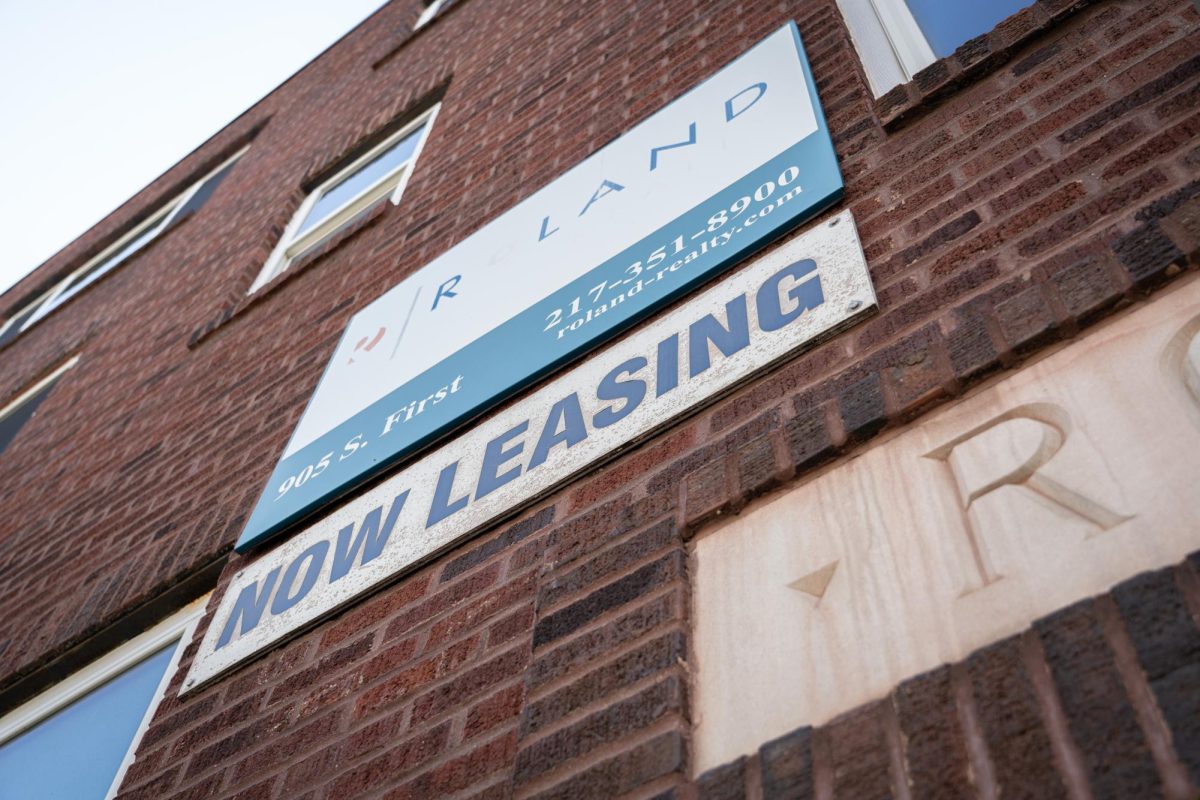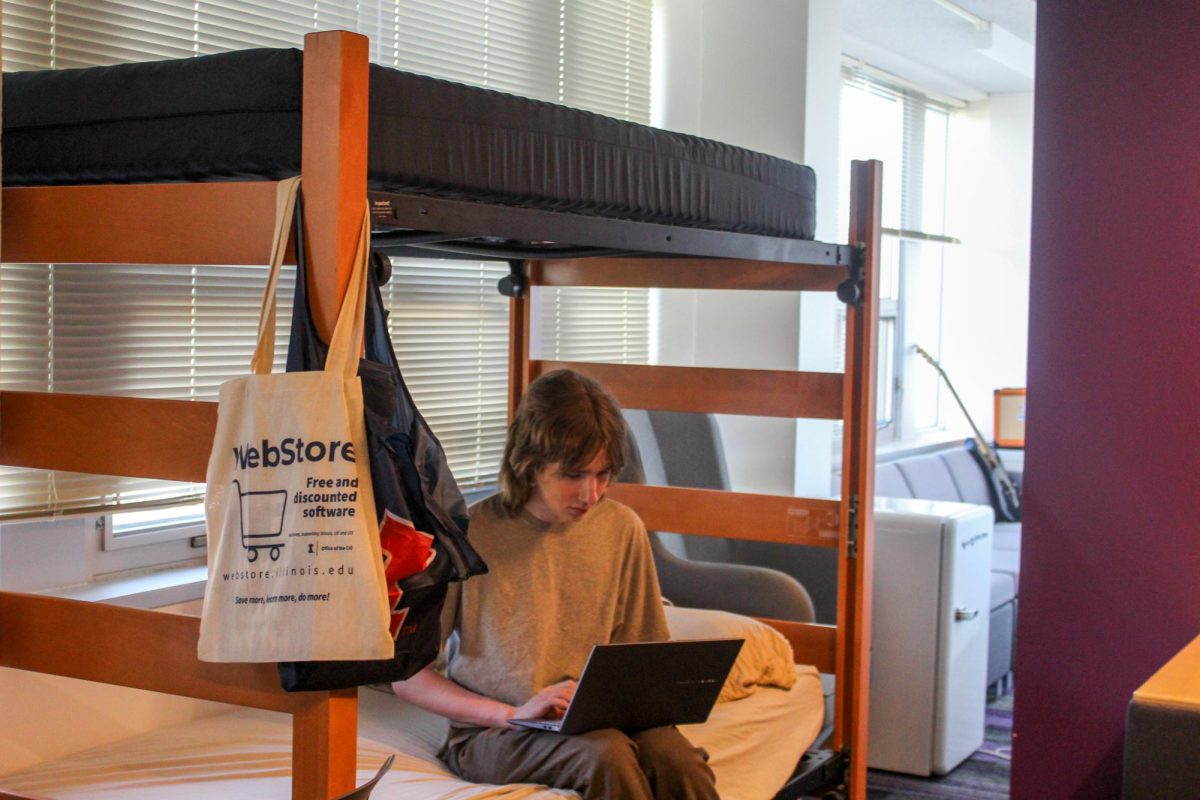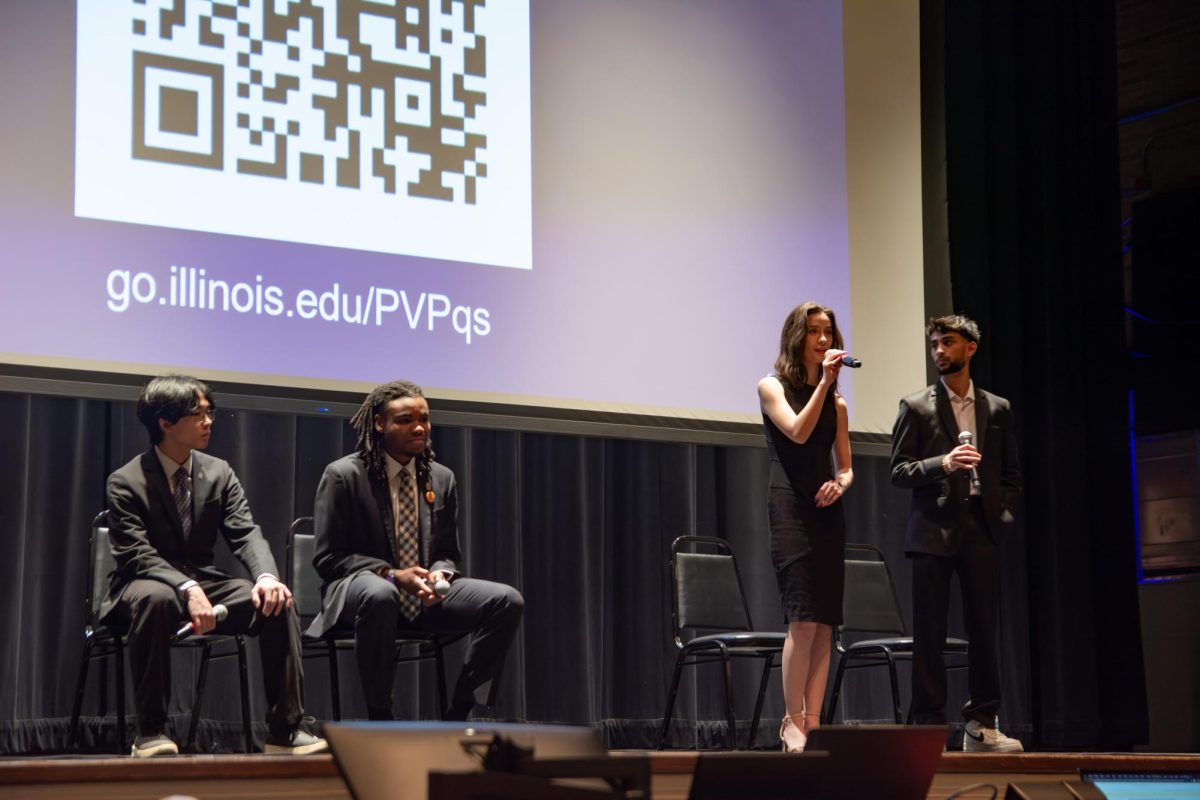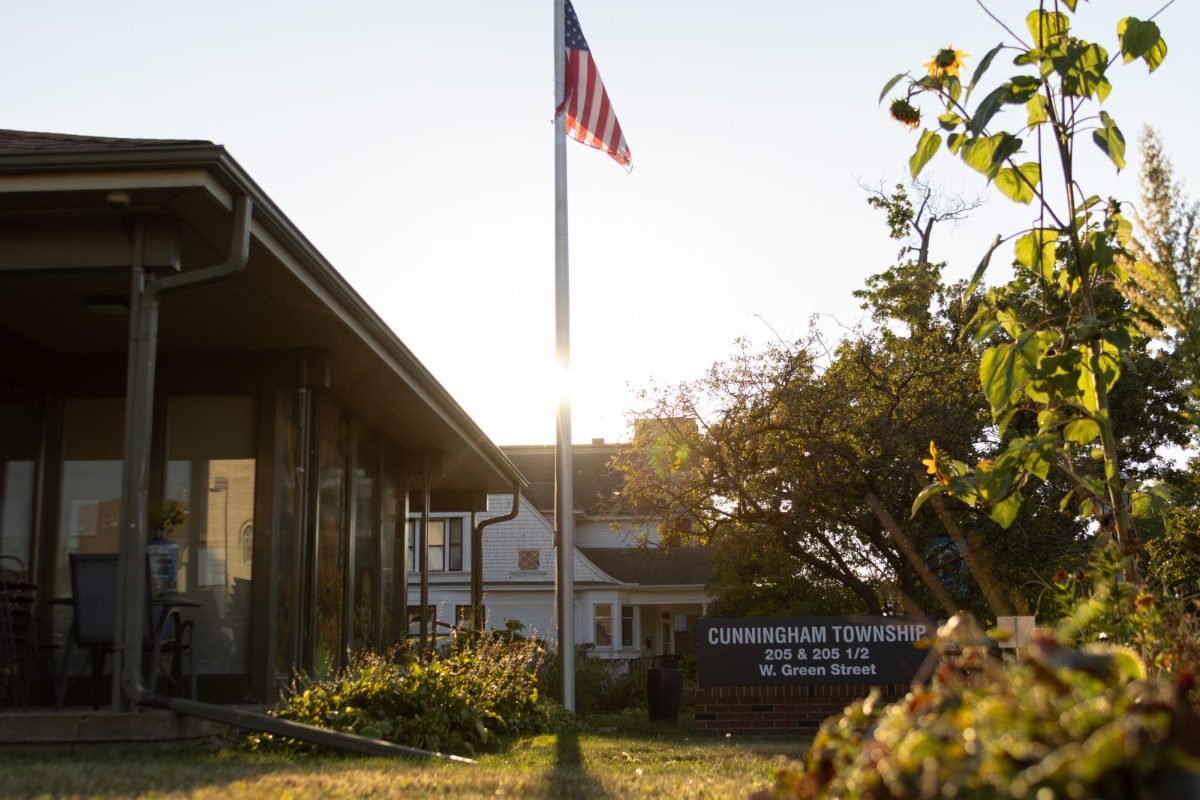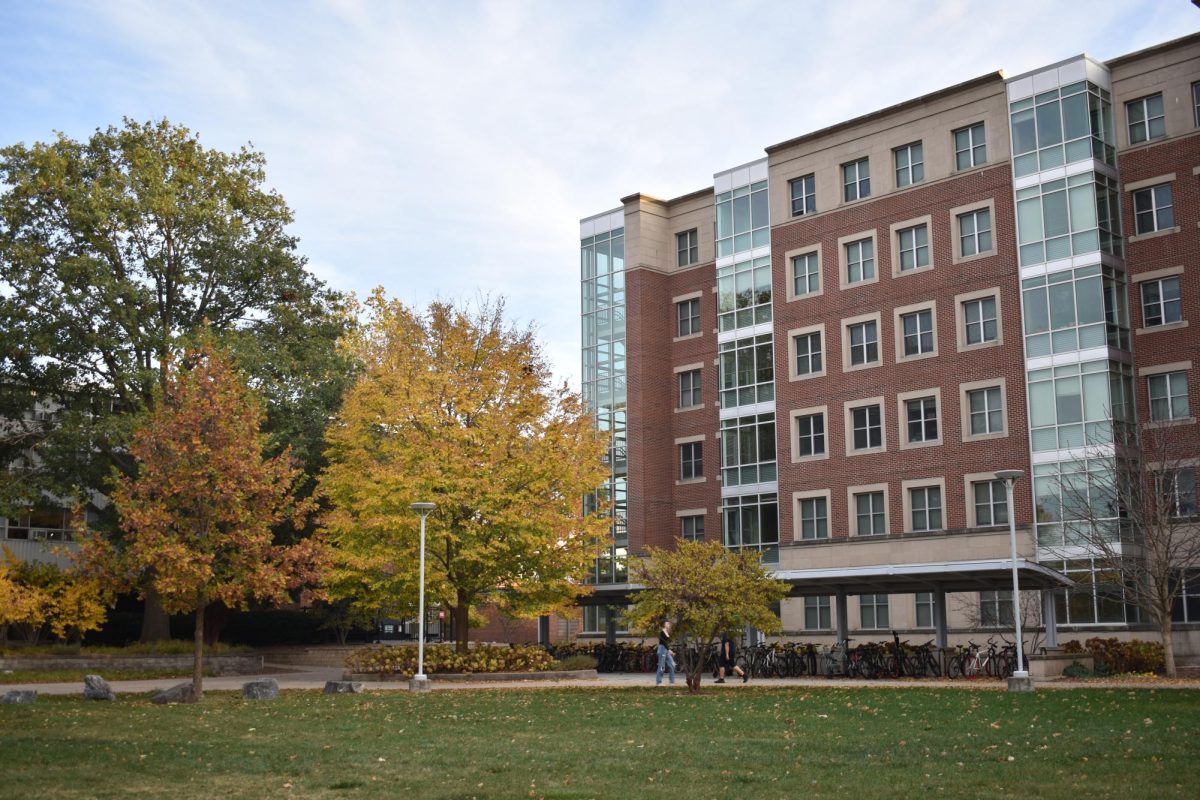Dylan Bogash, senior in LAS, toured several campus apartments before transferring to the University in the fall of 2022. When she saw a relatively inexpensive one-bedroom apartment on the Smile Student Living website, Bogash decided to tour the space.
“On the website, it was a beautiful, spacious unit full of natural light,” Bogash said.
When she arrived at the building, Bogash said the unit being shown was a far cry from the one she was expecting.
“When I got there, we were touring the basement unit, which was moldy and had no windows,” Bogash said. “When I talked to the realtor, I told her this was not what I drove down here for, and they took no accountability. It just felt so swept under the rug.”
According to Thomas Betz, director of Office of Student Legal Services at the University, although there is nothing illegal about this practice, it is sometimes predatory.
Get The Daily Illini in your inbox!
“It’s almost like the term bait and switch — they bait you with the beautiful apartment and they switch it,” Betz said. “Don’t sign the lease until you see the actual unit. The trick is, that is really difficult to do if you’re in Beijing.”
For many students, a campus visit before signing a lease is not an accessible option — either due to sheer distance from Champaign-Urbana or other limiting factors. Still, Betz said the leasing company has almost no legal obligation to be transparent about their offerings.
“There’s no definition of luxury; it’s puffery and it just doesn’t have much meaning,” Betz said. “They can always win that case. When they show the model on their website and YouTube, there’s a little fine print that always says ‘this is a model.’”
Betz said that there are certain things about an apartment, such as the advertised quantity of bedrooms, plumbing, running water or heating, that the leasing company has an obligation to provide. Other things, unless explicitly promised in the lease, are not obligatory.
According to Betz, the first line of defense students have against issues with their apartments is reading and understanding their lease in its entirety.
“Students will come to (University Student Legal Services) and say ‘I want to challenge, I want to blah, blah, blah,’” Betz said. “I always say, ‘Let’s look at the lease.’ I always make students read the lease. I say, ‘Well, on page 3, you’ve agreed to this.’ … I’m not knocking you, you just didn’t read your lease.”
The leases brought forth by many realtors, Betz explained, are extensive and often require tenants to waive crucial rights in assumption that they won’t read the fine print.
“You have some of these leases, you sign everything away except your firstborn,” Betz said, laughing. “Sometimes you’re signing away your right to make a complaint about mold and bedbugs, which I think is ridiculous — but I see them all the time.”
According to Betz, there are legal rights for students whose landlords are not meeting expectations outlined in their leases. Betz also said that landlords have a responsibility to maintain certain basic standards of living.
First, Betz advises that students save records of every complaint or maintenance request — particularly with code violations.
“They need to go to the landlord, do a screenshot and when it’s not quickly resolved, they need to go to the city and get a code inspection,” Betz said. “Both cities do have the power to close them down if necessary on an (unsolved) heat or plumbing issue.”
According to Andrew Greenlee, professor in FAA, predatory practices are often more impactful within the campus community because students are likely first-time renters.
“Part of the challenge for new housing consumers, new renters, more generally, is that oftentimes they don’t yet have experience,” Greenlee said. “Students often don’t understand what recourse they have if those promises are not fulfilled by a landlord or by a property owner.”
Greenlee said that students are susceptible to this kind of a practice due to a variety of factors that are unique to their experience.
“They often take advantage of a population that is geographically constrained and have to move here, … financially constrained, but also have, in many cases, a lack of information to fight back against approaches that are predatory in nature,” Greenlee said.
Garrett Jurina, sophomore in LAS, said he lives in a Smile Student Living-managed apartment that does not have a working fire alarm. According to Jurina, he is within his rights to withhold rent and report the issue to the city of Champaign.
“They haven’t even gotten back to me, but I told them that I’m withholding rent until they fix the fire alarm because it basically means our apartment is legally uninhabitable,” Jurina explained.
According to Jurina, these behaviors on the part of Smile are symptomatic of a predatory market.
“There’s always going to be a demand on campus for student housing,” Jurina said. “No matter what they offer as a price, students are going to have to live somewhere. There aren’t enough dorms or University housing to house all the students on campus, so I think they just take advantage of that to bump prices up.”



